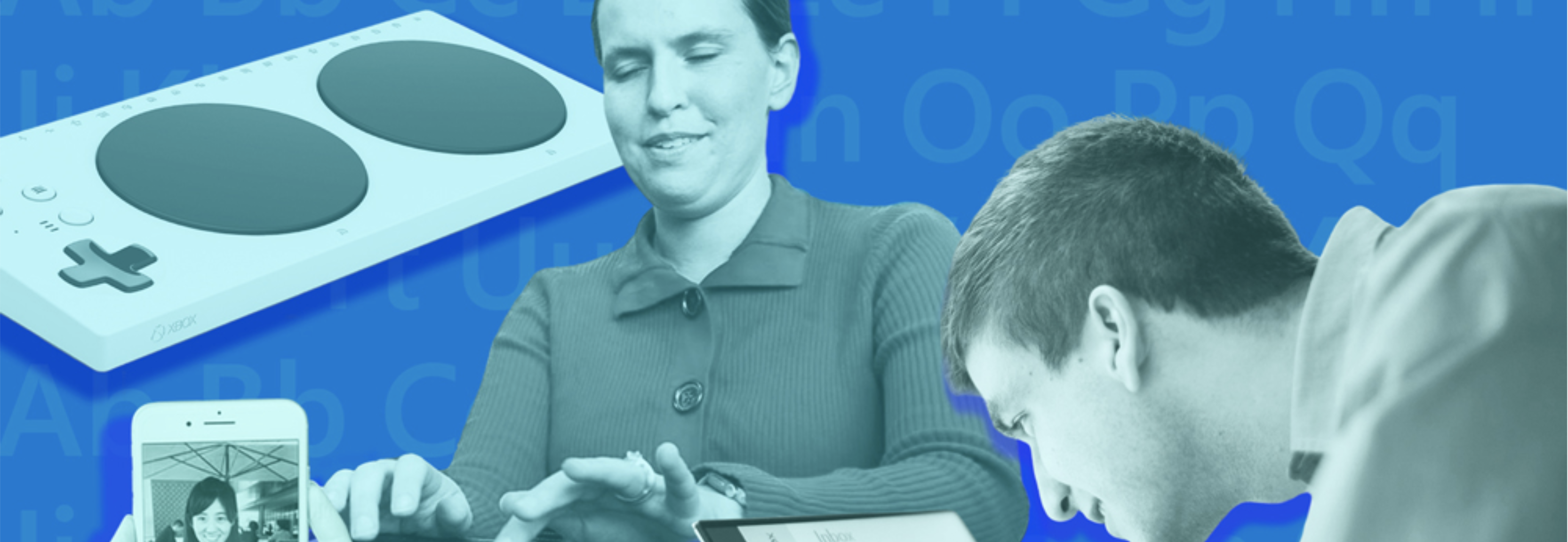The goal of technology is often to enable us to do things more quickly, more efficiently, or to do them at all. "Us" includes all of us. Approximately 1 billion people live with a disability, according to the World Health Organization. Access to technology shouldn't be restricted by our vision, hearing, mobility, mental health, learning disabilities or cognitive differences. Creating and developing technologies for everybody to use involves embracing diversity and an inclusive culture in Microsoft's own workforce. Often, the main obstacle to inclusion and diversity is the lack of awareness. As a starting point to educate and share, read our starting guide to understanding accessibility, from A to Z at Microsoft on the Issues.
☰
More from GZERO Media
- YouTube
Former UN High Commissioner for Human Rights Michelle Bachelet says global leadership needs a different kind of leader.
- YouTube
As the UN reaches its 80th anniversary, pivotal questions arise: How can it evolve to address contemporary global challenges? What reforms are essential for maintaining its relevance? At the 2025 Paris Peace Forum, GZERO Media's Tony Maciulis led a lively panel discussion on the urgent need for organizational reform.
Credit and debit card spending rose 1.7%, but weak wage growth and a cooling labor market still limit young consumers' buying power. Will lower housing costs offer relief? Subscribe to Bank of America for the full outlook.
Last week, I wrote about the political revolution that President Donald Trump has launched in the United States and how it has made America a fundamentally unreliable player on the world stage.
When Walmart stocks its shelves with homegrown products like Fischer & Wieser’s peach jam, it’s not just selling food — it’s creating opportunity. Over two-thirds of what Walmart buys is made, grown, or assembled in America, fueling jobs and growth in communities nationwide. Walmart’s $350 billion commitment to US manufacturing is supporting 750,000 jobs and empowering small businesses to sell more, hire more, and strengthen their hometowns. From farms to shelves, Walmart’s investment keeps local businesses thriving. Learn how Walmart's commitment to US manufacturing is supporting 750K American jobs.
- YouTube
"We don’t want an outcome where everyone in the world is not participating equally in this opportunity economy that’s coming from AI,” says Baroness Joanna Shields, Executive Chair of the Responsible AI Future Foundation. Speaking with GZERO Media’s Tony Maciulis, Shields emphasizes that responsible AI must deliver impact.
A Venezuelan Navy patrol boat sails off the Caribbean coast, amid heightened tensions with the U.S., in Puerto Cabello, Venezuela, October 24, 2025.
REUTERS/Juan Carlos Hernandez
On Tuesday, the US struck four boats off the Pacific coast of Central America, killing 14 people who the White House said were smuggling narcotics.
What We’re Watching: Gaza ceasefire wobbles, Far-right eyes win in Dutch election, Trump to meet with Xi
October 29, 2025
Israeli warplanes launched heavy airstrikes targeting an entire residential block near the Al-Sousi Mosque in Al-Shati refugee camp, west of Gaza City. The strikes destroyed a large number of homes, levelling some to the ground. Civil defense and ambulance teams rushed to the scene and are working to rescue victims and recover bodies from under the rubble amidst widespread destruction and significant difficulties in rescue operations due to the ongoing bombardment and a shortage of equipment.
Israeli strikes in Gaza killed 100 people last night, according to local officials, in the deadliest day since the signing of the ceasefire three weeks ago.
Hard Numbers: Massive drug raid in Brazil, Five Republicans vote to scrap Brazil tariffs, Wildlife charity eyes duke’s estate, & More
October 29, 2025
Members of the military police special unit detain suspected drug dealers during a police operation against drug trafficking at the favela do Penha, in Rio de Janeiro, Brazil, on October 28, 2025.
REUTERS/Aline Massuca
© 2025 GZERO Media. All Rights Reserved | A Eurasia Group media company.
